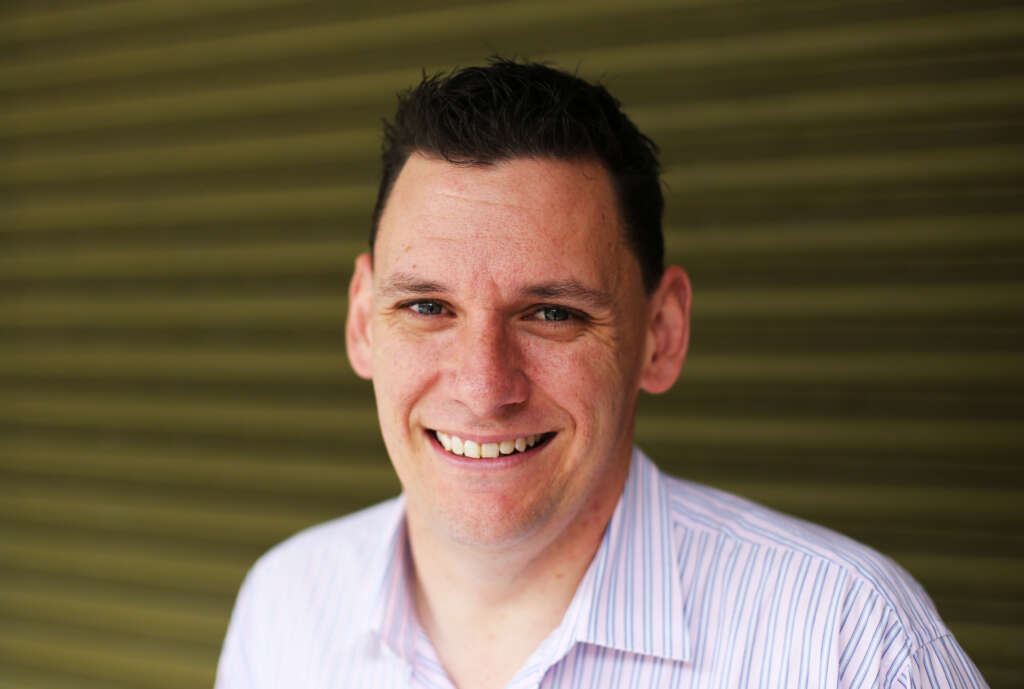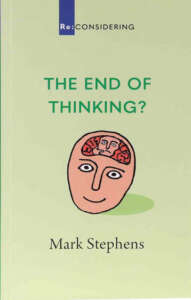Bible scholar, writer and teacher Mark Stephens confesses that he prides himself on being right – on pretty much any subject you care to mention.
“It’s part of my identity to be right so that when I’m wrong, I feel self-diminished. It’s my own evaluation of myself,” says the senior fellow at the Centre for Public Christianity (whose intellectual acumen can be gauged by the fact his PhD was on the Book of Revelation.)
But the problem with needing to be right all the time, says Stephens, is that our patterns and habits of thinking determine our friendships, whether for good or for ill.
“We form affinity groups with other people because we agree with what they say about stuff. And so, when we disagree, we go ‘I don’t know if I can we be friends with someone I disagree with,’” he says.
“It’s not easy, but if you cannot have a relationship of any kind with someone who’s across a divide for you from you, then we have to fracture into tribes – it’s the inevitable consequence.”
“If you cannot have a relationship of any kind with someone who’s across a divide for you from you, then we have to fracture into tribes.”
Not that we have to agree with everyone – the challenge is finding a way to hold together “constructive difference”, he says. For example, it’s possible to form a “really rich friendship” where you gently challenge the other person’s point of view, “but it’s hard work.” But if you never do that work, you just end up hanging out with people who think as you do, which is a bit sad, not to mention predictable.
Stephens was speaking to Eternity about his new book, The End of Thinking, and about his reluctant decision to leave CPX at the end of this month to take up a senior lectureship in New Testament at the Sydney Missionary and Bible College, on which more later.
His new book takes a very idealistic approach to thinking well – and one that is a much-needed corrective in the polarising landscape of social media, with its schisms and factions.
“We tend to assume that we are okay at thinking, that the way that we think about our decisions and the way that we make our opinions on this, that or the other, we assume we’ve got it down pat, once we’ve left school or left uni, but most of us could do with a check-up,” he says.

Mark Stephens, academic and author.
The book opens with an anecdote that shows how poor thinking can lead to all sorts of crazy scenes and at some point is going to hurt people. In this case, Stephens was doing everything he could to save a buck on a trip to Memphis in 2003 with his wife, a huge Elvis fan.
“I had the brilliant idea of booking a hotel 3 miles out of downtown. I figured that even with the cost of cabs, we would still end up 15 dollars to the good. 15 dollars, people. Frugality is my love language,” he writes self-deprecatingly.
“On our first evening we enjoyed dinner downtown, and then took a cab home. In the dim light, I mistook a 20 for a 1, and paid my driver 26 bucks for a 3-mile trip. I’m sure he was happy. I was inconsolable.”
“I’m sure he was happy. I was inconsolable.”
Still seething, the next night he accepted a ride from a complete stranger who borrowed the keys to a beaten-up Pontiac with a steering wheel held on with sticky tape, as his wife gripped his hand tightly. “It was her way of feeling safe. It was also a signal of what she intended to do to my throat once the car trip concluded,” he notes wryly.
When someone does something so mad and stupid, the standard response is to say, “what were you thinking?”
“Because we assume that people are thinking, and we don’t understand when people don’t think well, and yet the truth of the matter is we probably don’t think very well very often. We could ask that about ourselves quite a lot,” Stephens reflects.
Thinking well comes down to character rather than technique.
His answer to thinking well comes down to character rather than technique. He believes the character traits of humility, hospitality and love should guide our thinking in ways that we haven’t considered before.
“So humility is the character posture of assuming I could be wrong. It doesn’t mean you assume you’re wrong. It just means you’re open to ‘I could be wrong and that won’t be the end of the world if I am wrong,’ which changes the nature of the conversation. Because if you’re not able to be humble, then you’ll resist losing the argument or changing your mind at every and any point,” he says.
“Related to that is hospitality because hospitality is fundamentally about welcoming the stranger, and intellectual hospitality is being able to allow someone from a very different space and place and point of view to say something to you, and for you to actually give them the time of day to consider what they’re saying.”
He says this aspect is especially important in our day and age when we can screen out so much communication, curating our news feeds and weeding out our friends on Facebook.
“Then the character trait or the virtue of love is to ask how to reframe thinking as something that you do in order to help not only yourself but also other people because so many of our arguments are devoted to proving I’m right rather than to being helpful.
“So that means asking the question, if I’m having a thinking chat with someone else, ‘what is it they believe? Why do they believe it? But also, what’s the one thing under these circumstances that I need to say in order to be helpful?’”.
“The friend you want is not the one who has all the best answers, but sometimes has the best questions.”
While Stephens accepts that this approach is idealistic, he believes it doesn’t have to lead to “kumbaya” moments of superficial efforts at harmony and unity.
“Alan Jacobs, who wrote a book called How to Think, talked about thinking as sometimes the password to get into the clubhouse, and he talks about the way that works. He gives a suggestion that sometimes the friend you want is not the one who has all the best answers, but sometimes has the best questions,” says Stephens.
“They’re really generative friendships. Mentors, I think, work like that for us. Mentors are not always people that give you the answers you want or that you agree on, but they ask really good questions.”
The End of Thinking is one of a series of small books in CPX’s Reconsidering series that aim to demonstrate to a general audience a thoughtful Christian perspective on various cultural phenomena as opposed to defending how the Christian faith works out in everyday life.
As for his own coming to faith, Stephens, 44, says it came after going astray as a teenager.
“I grew up in a Christian home in Winston Hills. They loved me and pointed me to Jesus, but I didn’t grasp hold of real faith until my mid-teens. It came at a point in my life where I was starting to make some bad decisions, including a little shoplifting on the side. In God’s grace, I wasn’t a good thief and I got caught,” he confesses.
“I had treasured a kind of squeaky-clean reputation which was undermined by being caught stealing. But in the long run, it made me face up to the reality of my sin, my need of a Saviour, and the goodness of Jesus. My conversion didn’t happen overnight; it was more a dawning realisation that Christ’s work was for me.”
He went on to gain a doctorate from Macquarie University on the topic of new creation in the book of Revelation, then worked in youth and young adults ministry at St Paul’s Anglican, Castle Hill, followed by Coordinator of Integrative Studies at Excelsia College, before joining CPX a mere 2½ years ago.
“In one sense, it’s not time to leave,” he acknowledges. “It’s that I got offered a job that was too good to pass up for me, but I don’t want to leave … in fact, If I could script things for God, I would leave me in CPX for a little longer and offer me the job a few years down the track at SMBC! But my sense is that the job at SMBC matches my gifts in the greatest measure in terms of the classroom, in terms of teaching the Bible, in terms of caring and loving for students. Those are things that are very, very close to my heart, and opportunities like that are not frequent in the Australian scene.”
Stephens feels a sense of grief in leaving CPX because “I do feel like I’ve only just begun with them and I do feel like there’s more growing and learning and contributing that I have to do.
“But it’s a joy to have two opportunities like this … God has been very kind to me. I think it’s realistic to say a lot of us don’t get our dream job ever. And I feel like I’ve been offered two dream jobs. I’m super excited about teaching the Bible in a classroom setting, and praying that CPX goes from strength to strength.”
CPX executive director Simon Smart says Stephens will be really missed from the team.
“His depth of theological knowledge applied to contemporary life with a posture of non-defensive generosity made him a perfect addition to our team,” says Smart.
“His genuine humility, despite considerable personal gifting, his compassionate heart and interest in other people endeared him to all he encountered. Whether it was the book of Revelation, the state of US politics or the history of the Parramatta Eels, he exhibited a breadth of understanding, good grace, nuance and self-deprecating humour – all qualities we could do more of today!”
 The End of Thinking is available at Koorong
The End of Thinking is available at Koorong
It is part of a series of thought-provoking books from CPX writers called the Reconsidering series. https://www.reconsidering.com.au/
Email This Story
Why not send this to a friend?



